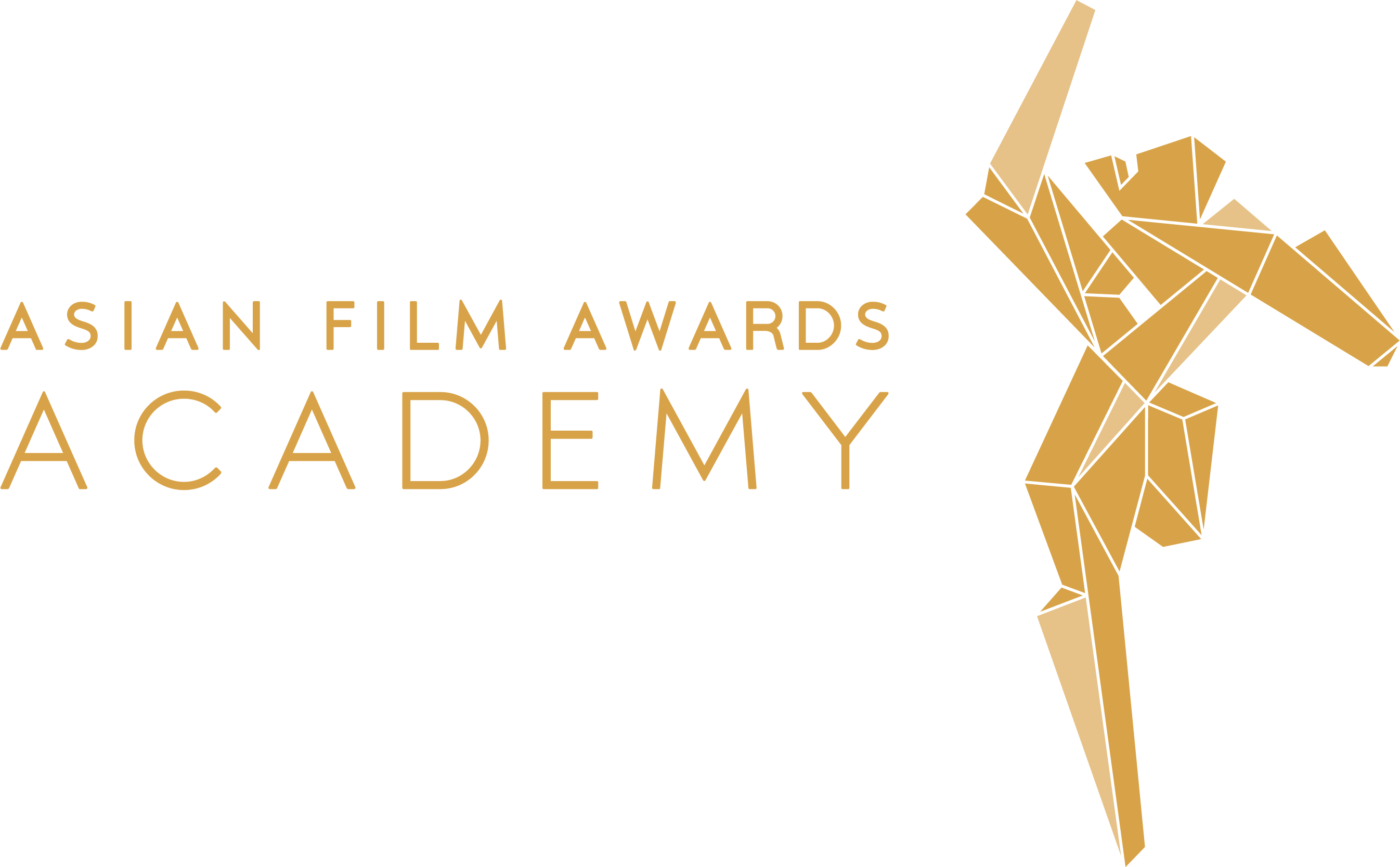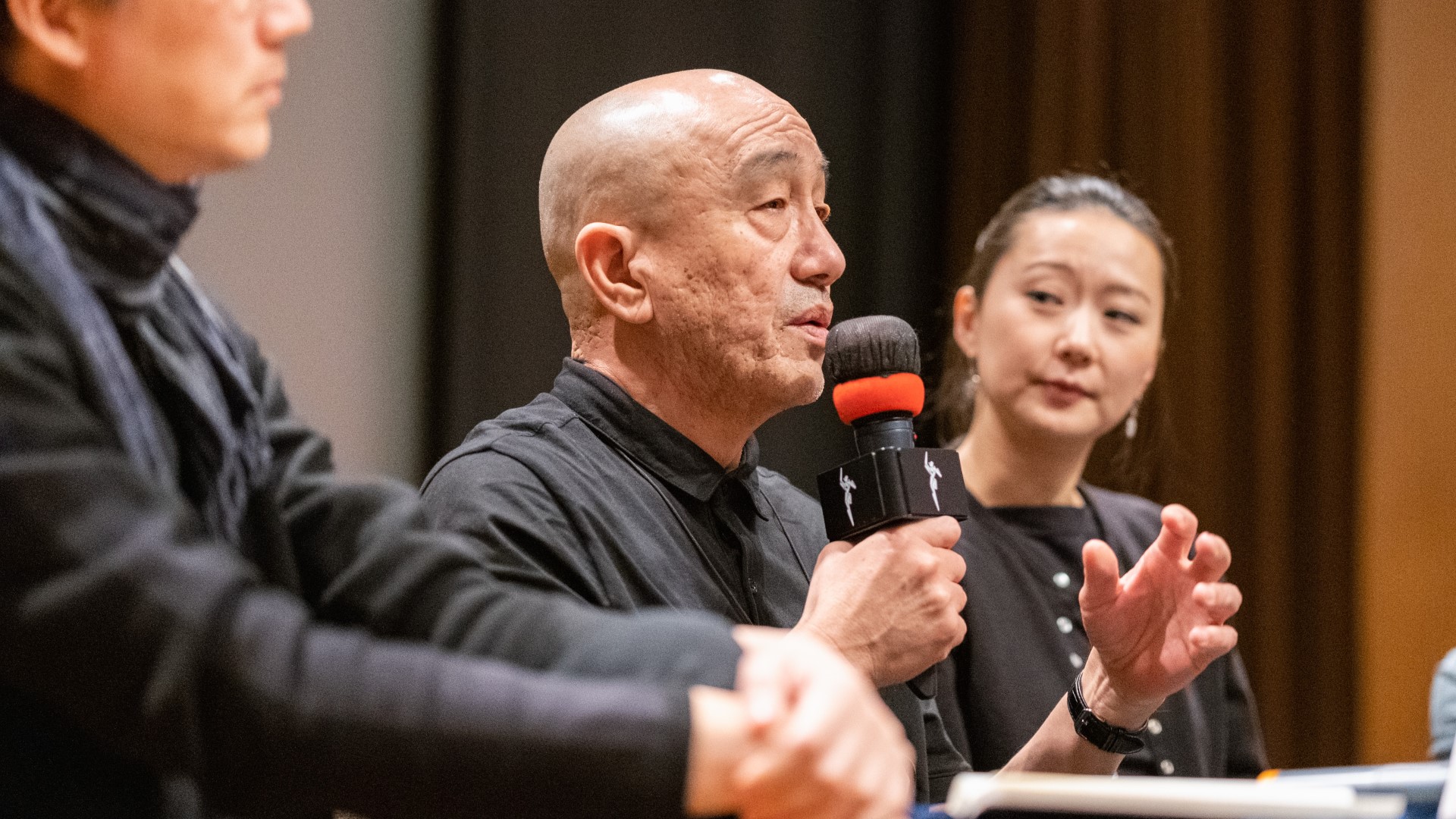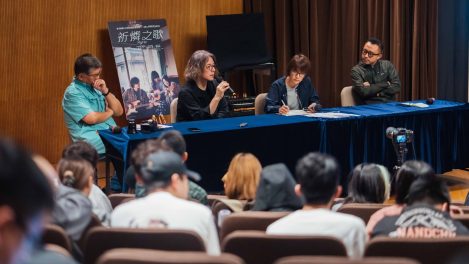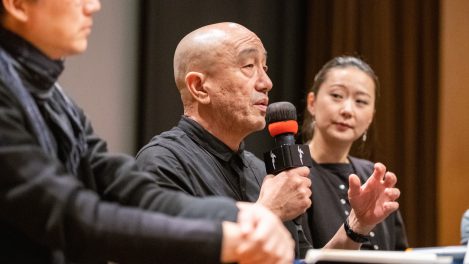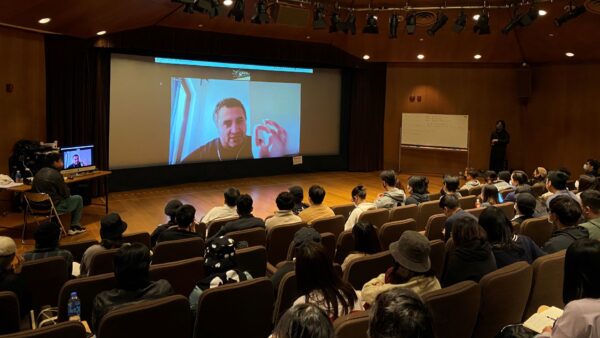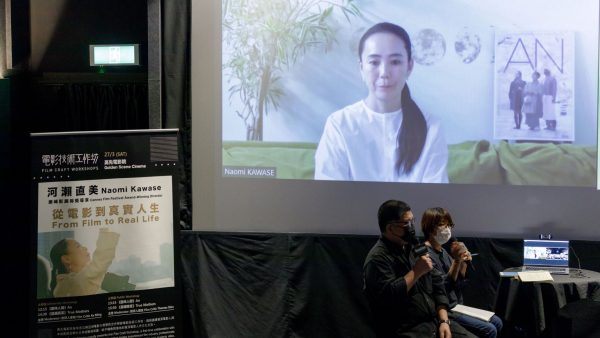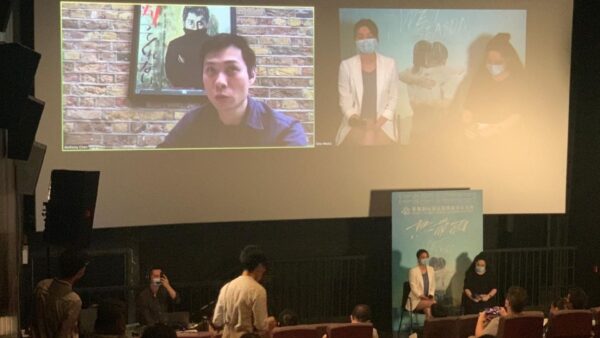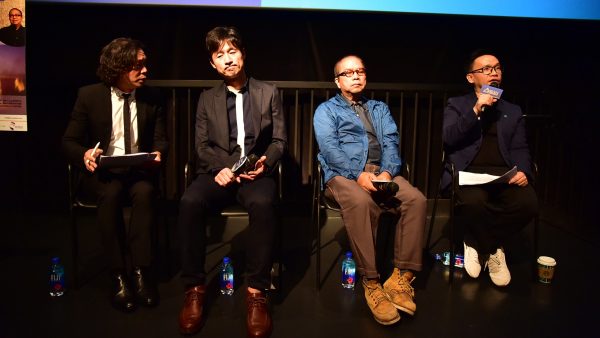ダルジャン・オミルバエフ
映画と言語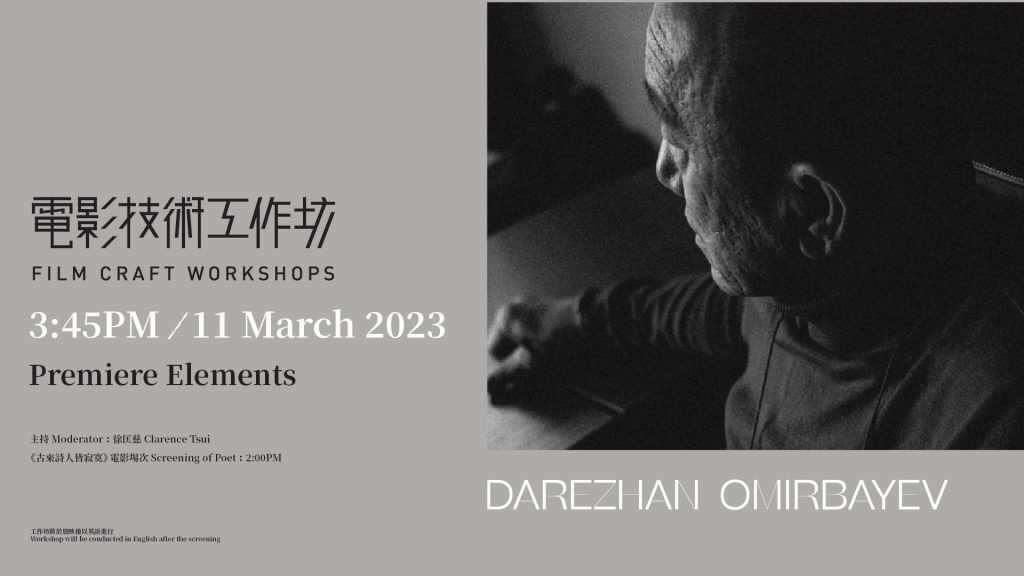
Date: 10 & 11 March 2023
Location: Hong Kong (Béthanie Theatre – The Hong Kong Academy for Performing Arts, Broadway Cinematheque)
Topic: Language and Cinema
Guest: Darezhan OMIRBAYEV
Moderator: Alex Lai & Elissa Rosati (University Session), Clarence Tsui (Public Session)
Partners: Broadway Cinematheque, The Hong Kong Academy for Performing Arts
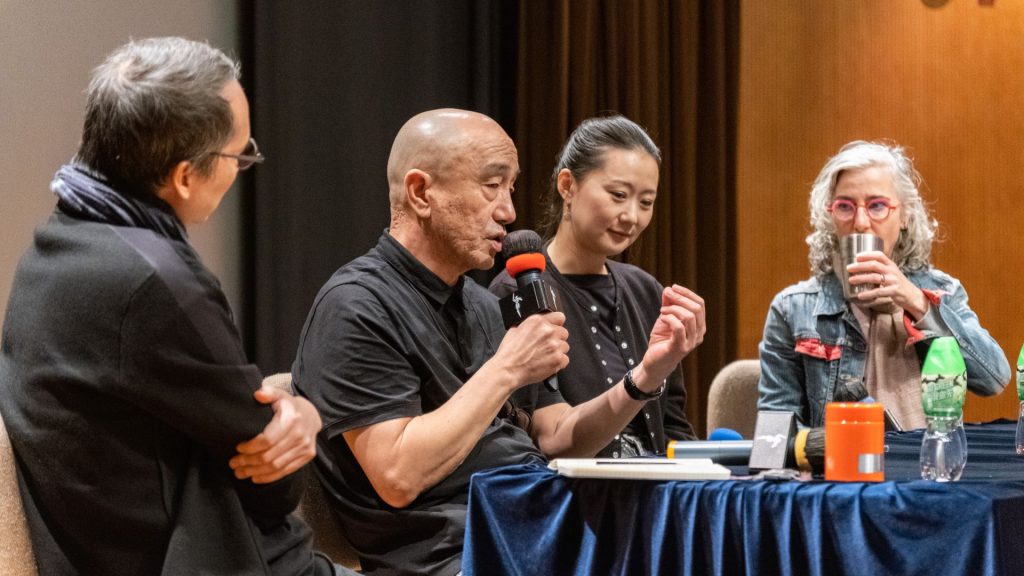
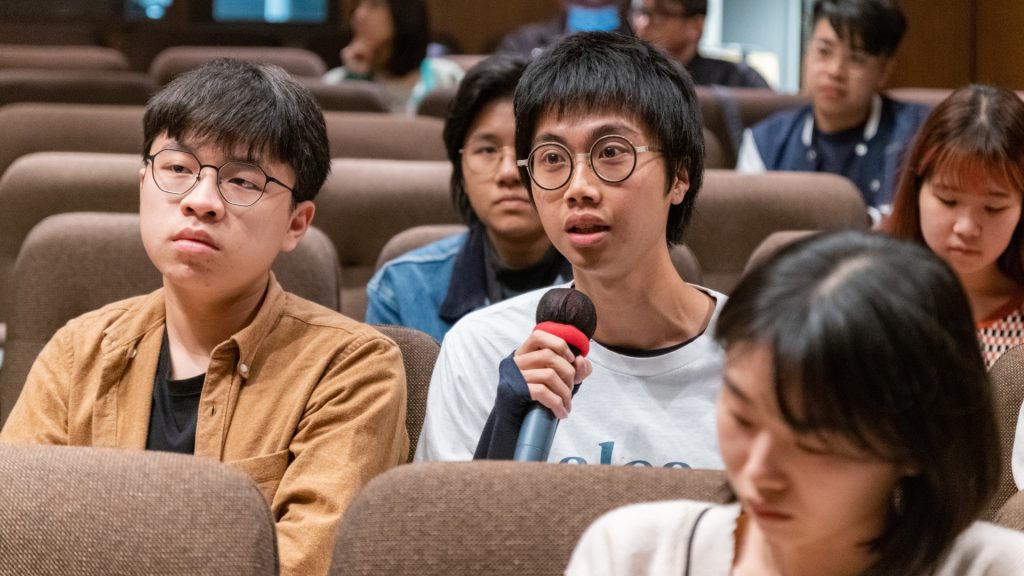
A leading director of the Kazakh New Wave, Darezhan OMIRBAYEV started out directing his first feature film Kairat in 1992, garnering the Silver Leopard Award at the Locarno Film Festival. He has made six more features since, with Killer (1998) winning the Un Certain Regard Award at Cannes Film Festival. With a background in mathematics before making films, Omirbayev considers the cinema as a solution constructed by different images – the language of cinema.
Language is a recurring subject of Darezhan OMIRBAYEV’s oeuvre and is further explored in his latest feature, Poet, which juxtaposes stories of an unrecognized modern-day poet and a legendary 19th poet. In the Film Craft Workshop co-organized by the Asian Film Awards Academy and the Broadway Cinematheque, we are honoured to have the director in person to talk about the language of cinema and the relationship of language and cinema.
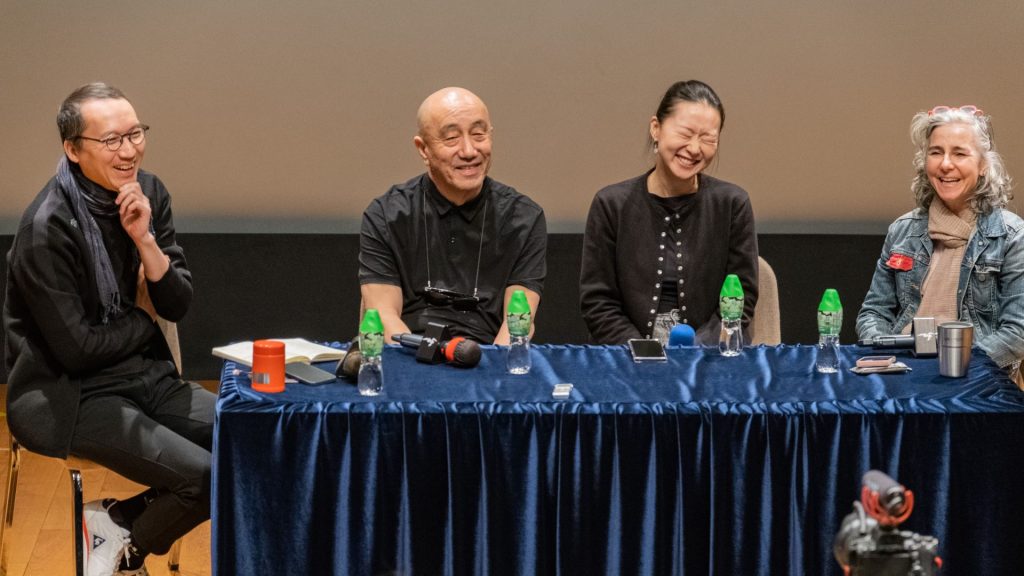
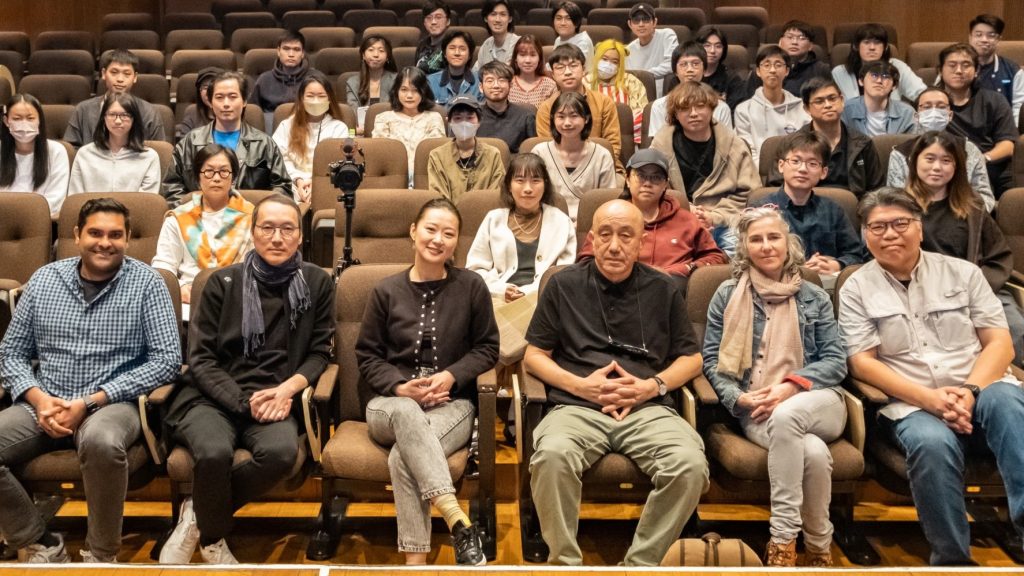
In the Film Craft Workshop co-organized by the Asian Film Awards Academy, Broadway Cinematheque and The Hong Kong Academy for Performing Arts, we were honoured to have Darezhan OMIRBAYEV, a leading director of the Kazakh New Wave in person to talk about the language of cinema and the relationship between language and cinema.
Everyone has the desire to be understood; this is why language matters. Being asked whether Poet is based on his real-life experience, Darezhan OMIRBAYEV answered that the film is not his autobiography in terms of plot, but the emotion it conveys —a fear of not being understood is a true reflection of his own personal experience. The director believes that every artist, even every human being, lives with this fear, and said, “Happiness is to be understood”.
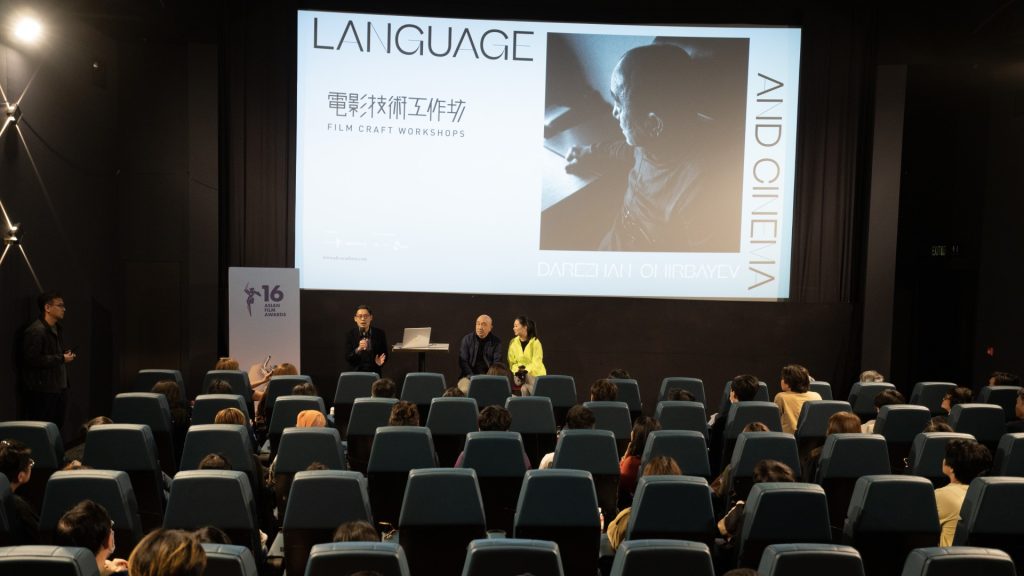
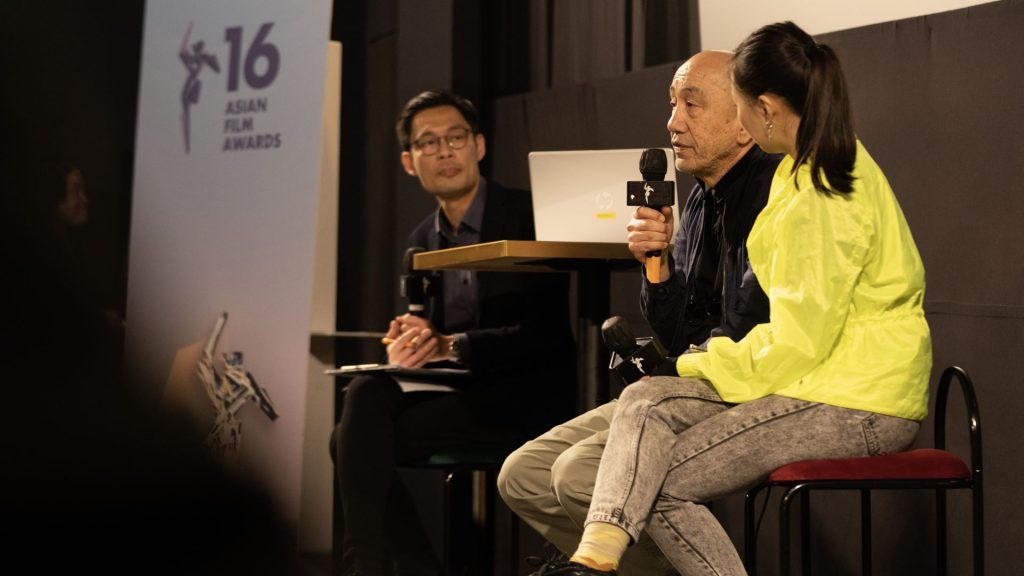
From Shuga (2009), an adaptation of the Russian literary masterpiece Anna Karenina, to Poet, a film based on “The Author’s Evening”, a short story by Nobel Laureate Herman Hesse, Darezhan OMIRBAYEV’s film language is full of literary traces. Speaking of the influence of literature on his filmmaking, the director said that while reading is good, it can be dangerous as it renders the readers slaves to the abstract construction in their heads. By adapting the novel into a film, Darezhan OMIRBAYEV uses the language of cinema to materialize the intangible literary imaginary so that he can avoid the dilemma of being devoured by the abstract swirl of literature.
From the use of film as a vehicle for classical literature to the use of non-professional actors, Darezhan OMIRBAYEV’s pursuit of realism in film is deeply influenced by the French auteur Robert Bresson. Unlike literature and theater, film is an art form that is close to material reality. Bresson’s austere and natural cinematic language encourages him to pursue filmmaking without the embellishment of acting or theatrical traditions. Even when he uses professional actors in his films, he shoots them as if they were ordinary people.
Apart from the language of cinema, the director is greatly concerned with the language of an ethnic community. “You can kill a director by stopping watching his film; you can kill a poet by stopping reading his poetry”. Poet is a story about the plight of two generations of Kazakh poets who are losing their voices, the Kazak. Under the trend of linguistic globalization and the rise of modern technologies, Kazakhstan is adopting English as its new main language. In the face of this overwhelming reality, Darezhan OMIRBAYEV decides to capture it on camera.
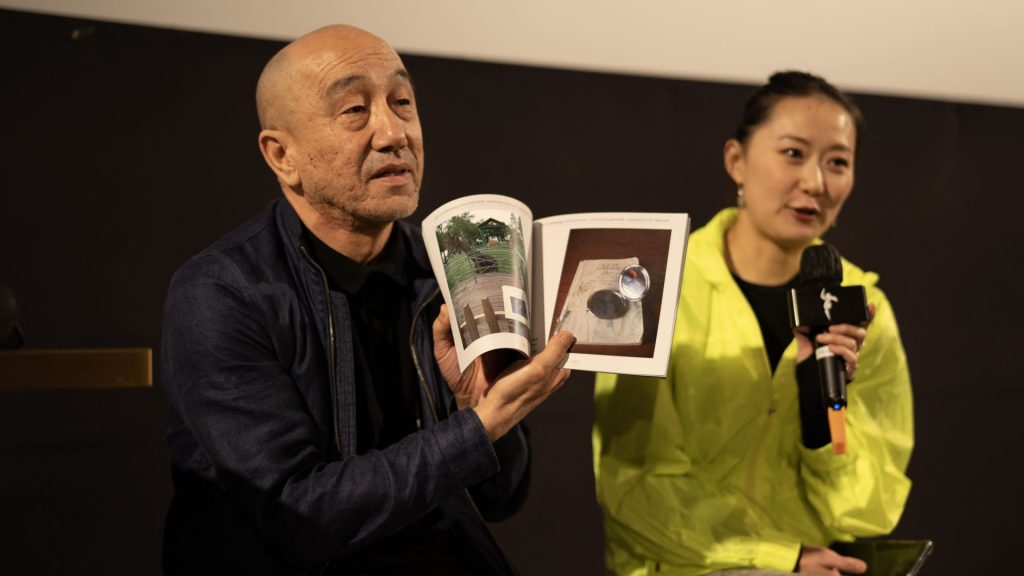
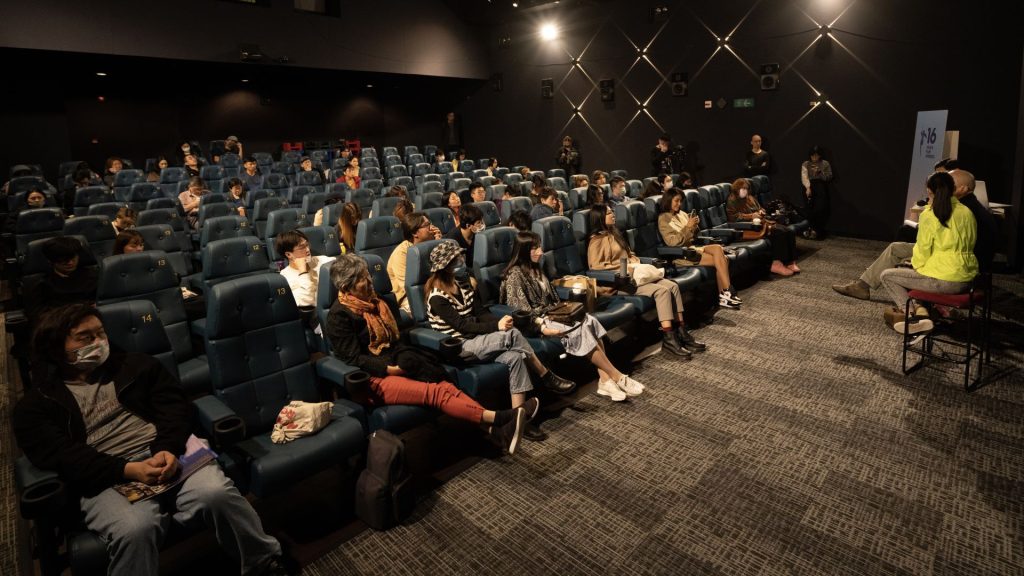
Asian Film Awards Academy
The Asian Films Awards Academy, a non-profit organisation, was founded by Busan, Hong Kong and Tokyo International Film Festivals with the shared goal of celebrating excellence in Asian cinema. Aiming to promote and recognize Asian films and its talents, AFAA highlights, strengthens and develops Asian film industry through the annual Asian Film Awards and several year-round initiatives.
The Asian Film Awards was inaugurated in 2007, where members of AFAA are drawn from its past nominees and winners. The category of awards includes Best Film, Best Director, Best Actor and Best Actress. Members vote for the Asian Film Awards and participate in various AFAA activities involving film professionals and audiences in Asia and around the world.

